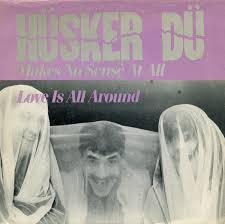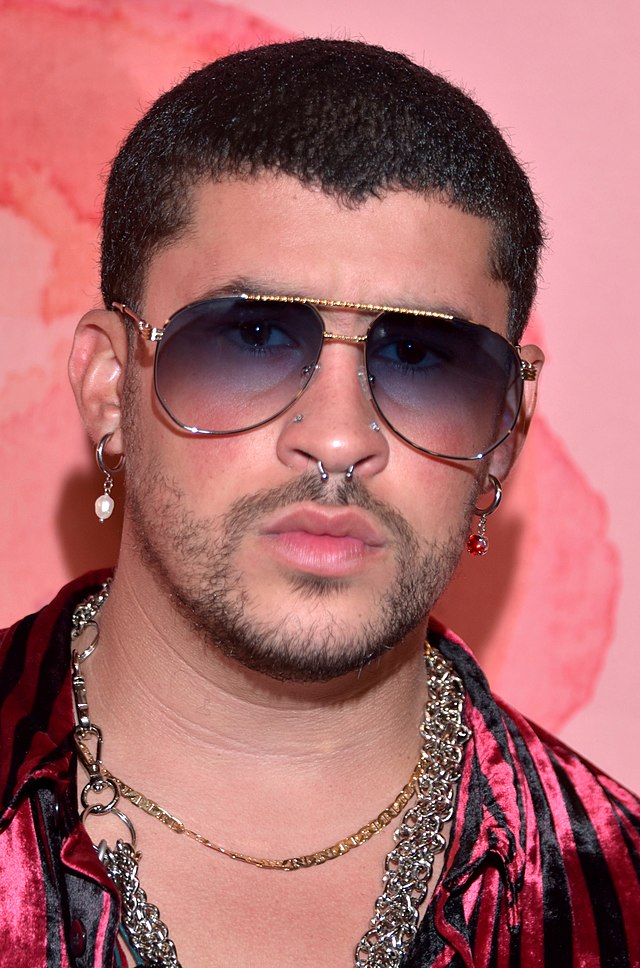Their legacy is too important to be swept under the rug.
The 1980s were the years the punk genre began to find its footing, and soon after, many punk bands succeeded during this period.
Punk is narrowed down to a few characteristics— It’s typically loud and fast, with overtones of anti-establishment and anger towards the government.
Of course, bands tend to become inspirations to each other, which was the case for this band in specific. With the successes of bands like “Black Flag” and “Dead Kennedys,” these bands grew from being an underground favorite to receiving critical fame.
And to top it off, it was important in queer spaces. This is Hüsker Dü.
Their Start As A Band
It began as a separate band entirely: Buddy and The Returnables to be specific, where the original band members, Bob Mould, Grant Hart, Greg Norton, and Charlie Pine started playing in 1979.
All the members met through sheer coincidence. Hart and Norton met at Cheapo Records–a record shop in St. Paul, Minnesota where Mould was a frequent visitor, and eventually enlisting Pine to help form a band, signing over to SST Records.
The name change came from the phrase “hüsker dü?” itself, which meant “do you remember” in Danish. According to Bob Mould himself, it was an attempt to stand out from some of the other new bands coming out at the time, as many hardcore bands would emerge during the 1980s.
Eventually, the group started releasing their first set of albums that established what kind of band they were; “Land Speed Record,” “Everything Falls Apart,” and “Metal Circus” established the band’s reputation for loud and fast punk music.
And then came “Zen Arcade.”
Their Peak
In 1984, “Zen Arcade” was the album that started putting the band in the general zeitgeist, giving the band critical acclaim.
If Hüsker Dü had a reputation for anything, it was for their fast, hardcore sound. “Zen Arcade” just solidified it, with their tracks like “Something I Learned Today” and “Indecision Time.”
“Zen Arcade” is also said to be a conceptual album, which is when an album tries to tell a story through its music and order. The story follows a boy leaving his home, in order to face an unforgiving world.
By 1989, the album reached number 33 on Rolling Stone’s 100 greatest albums of the 1980s list. Upon the release of the album, Rolling Stone proclaimed it as “the closest hardcore will get to an opera.”
Eventually, after “Zen Arcade” became a relative underground hit compared to the other hardcore bands of the time, that changed with the release of New Day Rising and Flip Your Wig in the following years (Specifically in 1985).
While “Flip Your Wig” gradually moved the band to a more “power pop” sound, it also helped Hüsker Dü become more well known as a college radio stay.
However, this would be the last time the group worked with their record label, SST.
“Selling Out”
After becoming one of the biggest independent bands to sign over to a major record label, people started claiming Hüsker Dü “sold out” due to the transition over from SST to Warner Bros.
However, the band switched record labels from SST to Warner Bros due to SST’s irresponsibility to distribute Hüsker Dü’s records properly while “Zen Arcade” was becoming big.
When “Zen Arcade” was first released, limited copies were produced. Only 3,500-5,000 copies were made, and when it was stuck as being “out of stock,” it frustrated the band enough to sign over to Warner Bros, as said by Our Band Could Be Your Life, a book by Micheal Azerrad.
While on the new label, the band released “Candy Apple Grey,” which is the first of any album from their discography to hit the Billboard 200, but it never reached past their spot of 140 on the charts.
This was also what solidified the band’s transition into less of a hardcore punk sound, and rather simply alternative pop/rock sounding music, proving in their new record “Warehouse: Stories and More.” This was what paved the way for the music genre of “grunge” to grow popular in the 1990s.
While creative and personal differences would be brought out between Bob Mould and Grant Hart, that would be the least of their worries when their manager, David Savoy, committed suicide just before the band’s 1987 tour to celebrate the release “Warehouse: Stories and More.”
However, there was another thing that drove the band to officially break up. During the same tour, Hart was a prolific drug user–specifically heroin– but tried to use Methadone as a way to quit.
Even when Hart couldn’t play his instrument right, he was persistent, despite Mould and Norton’s concern. However, Mould canceled the future tour dates.
Then, on January 26, 1988, the band officially broke up.
The Breakup And Its Aftermath
After the group broke up for six years, an album from their short tour, “The Living End,” was released in 1994.
A little after that was the official coming out of Bob Mould, Hüsker Dü’s frontman.
In 1990, Mould was initially outed in the entertainment magazine Spin, only to later come out himself in 1994.
Playing as Hüsker Dü in Minnesota, a state that had venues that were quite hostile to queer people, was hard on the band, especially Mould and Hart who were in same-sex relationships at the time.
Mould’s initial coming out was what paved the way for many other artists to do the same, and even spawned openly queer bands like Pansy Division. Even after that, the band continued to pursue different musical pursuits.
Throughout the 1990s and 2000s, Mould would also later start his own band, Sugar. For Norton, he jumped from band to band as their bass player. Hart played with the band Nova Mob, along with being a solo artist, before getting into the restaurant industry until 2010 with his ex-wife.
Their Legacy
While the band is mostly known for their fast, hardcore punk music, that was never what the band ultimately wanted to be solely known for.
So what is the band’s legacy then?
What they have done for music as a whole.
Hüsker Dü wasn’t only known for their hardcore music, but they also helped pave the way for indie and grunge music.
The most popular and commercialized grunge band, Nirvana, went on and credited Hüsker Dü for their sound, for it was “nothing new,” according to Krist Novoselic, Nirvana’s bass player on Kerrang. “Hüsker Dü did it before us.”
Along with influencing entire genres, they inspired some of the biggest bands of the punk and grunge genres, including the likes of Therapy?, Torche, and even Green Day and Foo Fighters.
Bob Mould was just as, if not more influential, by himself since he officially came out as gay in 1994, especially in Minnesota where the state’s venues weren’t as open and accepting back then.
In an interview with Decibel Magazine, Steve Brooks of Torche spoke about Hüsker Dü and Bob Mould, especially on his influence on identifying as gay in such a scene like rock and metal.
Brooks went on saying, “Before Rob Halford came out, there was Bob Mould [of Hüsker Dü and Sugar]. He wasn’t very vocal about it, but I’m a big fan of his music. It was comforting-one of my favorite musicians was ‘a gay!’ Kick ass!”
To elaborate, Rob Halford was also a big name in terms of gay musicians. He was known for playing in the heavy metal band Judas Priest. His coming out in 1998 was massive for the time, given his original fear of being ousted in the metal scene for it.
Yet, Bob Mould was years prior, and brought comfort to other musicians who weren’t out at the time.
Today, the band is still broken up. Yet, that doesn’t stop people from hoping for a reunion for the band.
In October 2015, the band set up an official website that would also house official merch. In an interview with the Star Tribune, it was established that “there was ongoing communication” between all the members now, according to Norton.
Sadly, that reunion seems unlikely now. On September 14, 2017, Grant Hart died of (at the time) undisclosed causes, revealed now to be due to liver cancer.
Hart’s death was, in a way, what put Hüsker Dü back in the general zeitgeist. Norton and Mould both have spoken about Hart’s death when it was first revealed.
“We made amazing music together. We (almost) always agreed on how to present our collective work to the world.” Mould said, according to the Phoenix New Times. “When we fought about the details, it was because we both cared. The band was our life. It was an amazing decade.”
And amazing music was right, for not only did it revolutionize many music genres, but also brought comfort to people.
May we remember Hüsker Dü.



